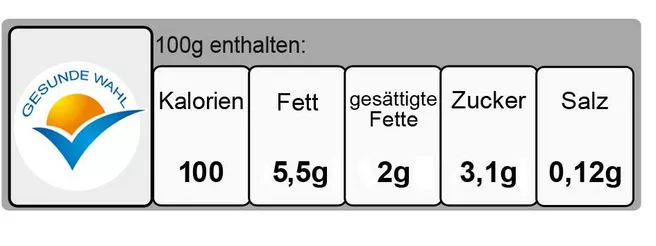Key findings of the article
In the awarded paper, Königstorfer and Gröppel-Klein describe how nutrition labeling schemes affect consumer attention and buying behavior. The authors studied three phenomena:
- First, to which extent a unified and simplified nutrition labeling scheme on food products creates higher attention than currently used nutrition labeling schemes
- Second, if attention can be further increased by making the nutrition labeling visible on all products
- Third, how the optimized nutrition labeling scheme affects food decisions of consumers that have low self-control
The study
The study was very time-consuming. It was not conducted in the laboratory, but in the field where consumers make real purchases. Hundreds of real products were manipulated to show optimized nutrition labeling schemes. Also, the study employed mobile eyetracking technology to capture consumers´ gaze behavior in supermarkets.
Consumers with low self-control profit
The study shows that a unified front-of-pack nutrition labeling does not lead to a fundamental change in consumers´ behavior. Making food purchases is a highly habitualized behavior. However, the labeling increases visual attention and helps consumers with low self-control make healthier decisions, according to the nutrient profile. Increasing visual attention is essential, because consumers spend only a couple of seconds to the looked set of products when making real-life purchases. Attention to nutrition labeling is limited to fractions of a second. In this context, the unified and simplified labeling (see picture) allows easier processing of information.
Public health and retailing implications
The article derives implications for public policy, consumer protection, food producers and retailers. The latter stakeholders should create a unified and simplified nutrition labeling scheme and contribute to facilitating healthy food decision-making among consumers. The labeling creates a win-win situation hence between economic interests of food producers and health interests of public policy and consumer protection agencies.
Contact:
Prof. Dr. Jörg Königstorfer
Uptown Munich Campus D
Georg-Brauchle-Ring 60/62
80992 Munich
Phone: +49.89.289.24559
Fax: +49.89.289.24642
info.mgt(at)sg.tum.de

